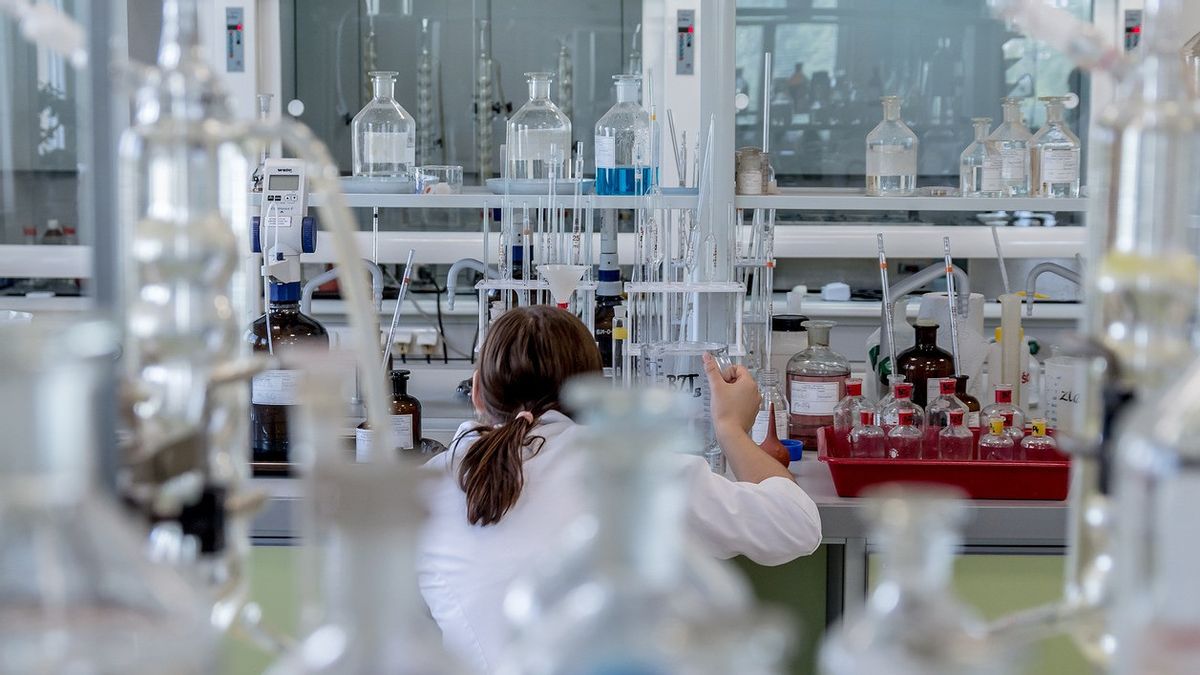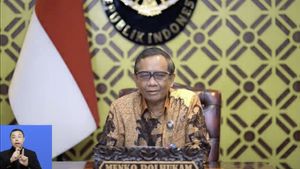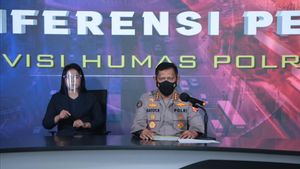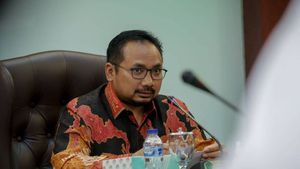JAKARTA - The COVID-19 pandemic has indeed wreaked havoc on the world, including Indonesia. So many people have died as a result of being infected with COVID-19, accompanied by an increasing health burden and a weakening economic movement.
But on the other hand, the COVID-19 pandemic brought an important lesson that recorded a milestone in Indonesia's history, namely the start of independent vaccine development.
Before the COVID-19 pandemic occurred, Indonesia had never developed its own vaccine from scratch, namely, the vaccine seed formula was developed by domestic researchers and carried out in the country.
The COVID-19 pandemic has actually become a momentum for Indonesia to move and start to make a new history to create its own vaccine that will encourage the independence of the Indonesian nation in meeting the needs of the COVID-19 vaccine.
As is known, Indonesia is an archipelagic country with a large population, currently around 270 million people. Of course, that number is quite large, and the number of vaccines needed for all Indonesian people is also very large.
With the injection of two doses of the vaccine, 540 million doses are needed for the entire population of Indonesia. Not to mention added a booster dose (booster). As of Wednesday (3/3), 54.15 percent of Indonesia's 270 million population received two doses of the COVID-19 vaccine. All vaccines used today come from abroad.
It is difficult to completely depend on supplies from abroad, while the number of COVID-19 vaccine producers is only a small fraction of the total world population who need vaccines. This affects access, equity, and speed of vaccination among countries around the world.
As a result, there is a large gap between the world's ability to meet the needs of the COVID-19 vaccine for the entire global community because vaccine manufacturers are still very limited. Access to the COVID-19 vaccine is also still limited and not evenly distributed among the world's countries, especially for low-income countries.
Launching, Antara, Friday, March 4, while administering the COVID-19 vaccine cannot wait any longer in the midst of a pandemic that is still engulfing the community because people's lives are at stake.
Moreover, this is compounded by concerns that the SARS-CoV-2 virus that causes COVID-19 continues to mutate, potentially creating variants that can evade some of the immune protections created after vaccination. And what is most worrying is if a variant that is immune to vaccine protection emerges.
For this reason, the COVID-19 vaccine must be injected into the community more quickly amidst the rapidly mutating rate of the virus. The COVID-19 vaccine is needed to develop a person's immunity to the SARS-CoV-2 virus that causes COVID-19.
Although, until now, there is no single vaccine that can create full or permanent immunity against the coronavirus that causes COVID-19, but the immunity generated is able to strengthen antibodies in the body to fight viral infections so that a person is not expected to fall into a severe or critical condition. increase the risk of death.
Therefore, Indonesia has started to develop its own vaccines, in order to reduce dependence on external parties, and at least the vaccines that are created will be able to meet the needs of domestic vaccines.
Now as many as seven domestic teams are developing the COVID-19 vaccine, which are members of the national consortium for the development of the Merah Putih vaccine.
The seven teams are Airlangga University, Gadjah Mada University, University of Indonesia, Bandung Institute of Technology, Padjadjaran University, former Eijkman Institute for Molecular Biology, and former Indonesian Institute of Sciences (LIPI). Eijkman and LIPI have been integrated into BRIN since 2021.
Acting Head of the Life Sciences Research Organization of the National Research and Innovation Agency (BRIN) Iman Hidayat said each team developed the Merah Putih vaccine with a different method, ranging from vaccines based on virus inactivation to vaccines based on recombinant protein.
However, the fastest progress has come from Airlangga University, in collaboration with PT Biotis Pharmaceuticals Indonesia.
Currently, the Merah Putih vaccine whose vaccine seeds were developed by Universitas Airlangga is undergoing a phase 1 clinical trial process by injecting vaccines to 90 volunteers aged at least 18 years.
Meanwhile, other teams are still in the optimization stage of antigen yield, and some are conducting preclinical tests.
The COVID-19 vaccine is indispensable both for the use of early vaccination and for booster vaccines. A booster vaccine is needed because the immunity that arises after the COVID-19 vaccination does not last forever, so it will gradually decrease. In order to maintain immunity, it is necessary to re-vaccinate.
BACA JUGA:
Big challenge
The development of the Merah Putih vaccine in Indonesia is a big challenge for researchers in the country because so far no one has the experience to create a vaccine that starts from scratch, according to the Head of BRIN, Laksana Tri Handoko.
The development of the vaccine from the beginning includes starting from the manufacture of vaccine seed formulas by domestic researchers and carried out in Indonesia, until the production of vaccines is carried out domestically.
However, the COVID-19 pandemic was able to urge all parties to open their eyes more widely about the importance of mastering science and technology as well as increasing capabilities and collaboration to create vaccines independently.
The urgent need for vaccines in large quantities for the needs of the entire community in the midst of the COVID-19 pandemic has become an urgency that has pushed the world of research and innovation in Indonesia to level up, so that they dare to take steps and allocate resources to build independence in creating the Merah Putih vaccine.
Although vaccine development is required to be fast during the COVID-19 pandemic due to the urgent need for vaccines, researchers and related parties carry out all vaccine development processes in accordance with standard procedures and scientific standards so that later they can obtain an emergency use authorization from the Regulatory Body of Drugs and Food (BPOM).
This is done to ensure vaccine products, both in terms of safety, efficacy, and quality, so that they are safe and efficacious when used by the public.
Indonesia's ability to produce a Merah Putih vaccine for COVID-19 will be a big asset to develop other vaccines in the future. Even if the possibility of a pandemic occurs in the future, Indonesia is better prepared to deal with it, including preparing the vaccines needed.
"This is a valuable asset for researchers to develop other vaccines," said Handoko.
The development of the Merah Putih vaccine is truly an invaluable lesson and experience for the advancement of Indonesia's research and innovation, because it is a valuable future investment in strengthening Indonesia's ability to develop vaccines independently.
The English, Chinese, Japanese, Arabic, and French versions are automatically generated by the AI. So there may still be inaccuracies in translating, please always see Indonesian as our main language. (system supported by DigitalSiber.id)















